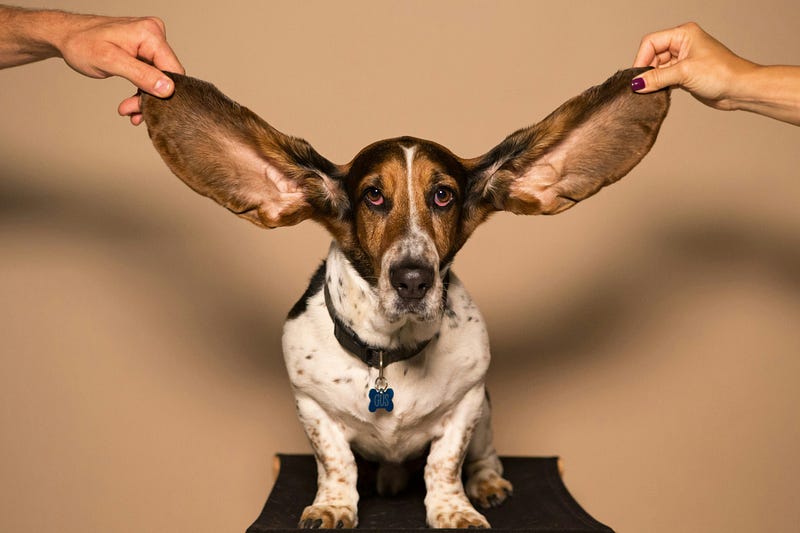Enhancing Listening Skills Through Attention: A Personal Journey
Written on
Chapter 1: The Challenge of Hearing Loss
In the quest to become a better listener, one critical element stands out: attention!

Photo by Kyle Smith on Unsplash
When you search online for tips on enhancing listening skills, you'll find a plethora of information. While some might be beneficial, there's an overwhelming number of lists detailing various strategies to improve your listening abilities.
Admittedly, I consider myself a poor listener—not due to a lack of effort, but because I suffer from progressive hearing loss. This condition, a result of an early illness, has progressively worsened over the years. After finally getting my hearing tested five years ago, it became evident to my wife that my ability to hear her had significantly declined.
Since then, I've been using my second pair of hearing aids, which, contrary to popular belief, do not restore hearing to normal levels. As someone who will continuously face hearing challenges, I've accepted my situation and surprisingly found that it has made me a more attentive listener.
In this narrative, I will share my insights on enhancing listening skills, applicable regardless of age, profession, or even one's hearing capabilities.
Chapter 1.1: The Importance of Attention
The key to becoming a better listener can be summed up in a single word: attention! This goes beyond merely practicing "active listening"—it involves fully committing to the conversation at hand, prioritizing it above all else in that moment.
For those with hearing impairments, "paying attention" becomes a more deliberate and assertive endeavor than simply employing listening techniques. It requires a strategic approach to ensure that you give the speaker your undivided focus, whether in a personal conversation or during a lecture you are genuinely interested in.
To enhance your listening skills, consider the following essential strategies:
- Setting
- Positioning
- Eye Contact
- Repetition
- Clarification
Section 1.1.1: Setting
Choosing an appropriate environment for conversations is crucial. To improve your hearing and comprehension, select a conducive location. Here are some tips to consider:
- Do your research! Understand which environments work best for you and which ones do not.
- Opt for quieter venues, like a calm restaurant instead of a noisy sports bar.
- If a location is too loud, don't hesitate to suggest moving to a quieter area nearby.
Section 1.1.2: Positioning
Your physical placement during conversations plays a significant role. Seek out the best seating arrangements, such as round tables where you can sit beside the person you're conversing with. Being closer increases your ability to hear them, regardless of their voice's pitch or volume.
Section 1.1.3: Eye Contact
Maintaining eye contact is not just vital for speakers; it is equally important for listeners. By looking at the person speaking, you can pick up on their non-verbal cues, which enhances your understanding of the conversation. As someone who has coped with hearing loss, I've developed strong lip-reading skills, and observing a speaker's mouth can greatly aid comprehension.
Section 1.1.4: Repetition
Never hesitate to ask someone to repeat themselves. If you didn't catch what they said, how can you engage in a meaningful conversation? Requesting clarification demonstrates your commitment to understanding and actively listening.
Section 1.1.5: Clarification
Don't shy away from seeking clarification during discussions. This not only reflects your genuine interest but also ensures you accurately grasp the speaker's message.

Photo by Christopher Burns on Unsplash
Chapter 2: Conclusion
Ultimately, the essence of effective communication lies in the attention we offer one another. Each conversation should be treated with the utmost importance, as it can lead to meaningful connections.
For those of us with hearing challenges, these strategies become even more critical. Nevertheless, regardless of hearing ability, striving for fulfilling conversations with colleagues, friends, and loved ones is a worthy goal.
To maximize the potential of every interaction, adopt a focused approach and commit to making each conversation count.
Learn More About Professor David C. Wyld
Subscribe to his Medium article feed here.
In this insightful video, discover why many audio engineers experience hearing challenges and how these conditions can ultimately enhance their listening abilities.
In this candid discussion, learn how to protect your hearing and avoid the mistakes that can lead to permanent damage.